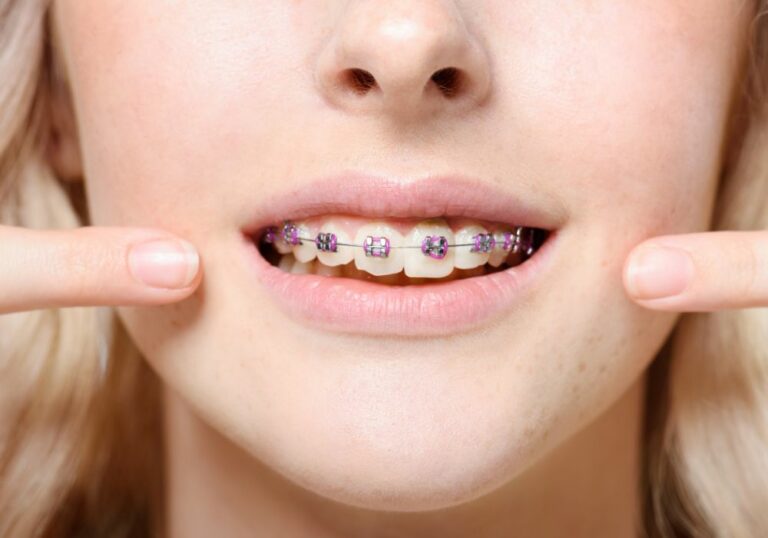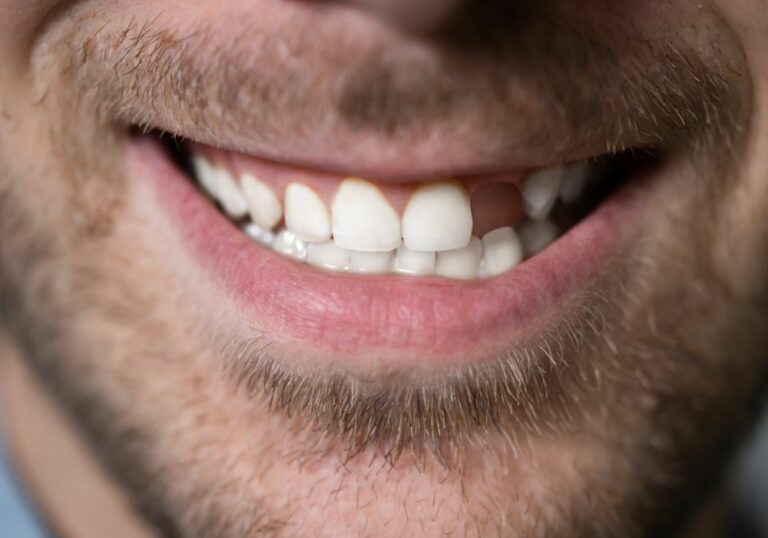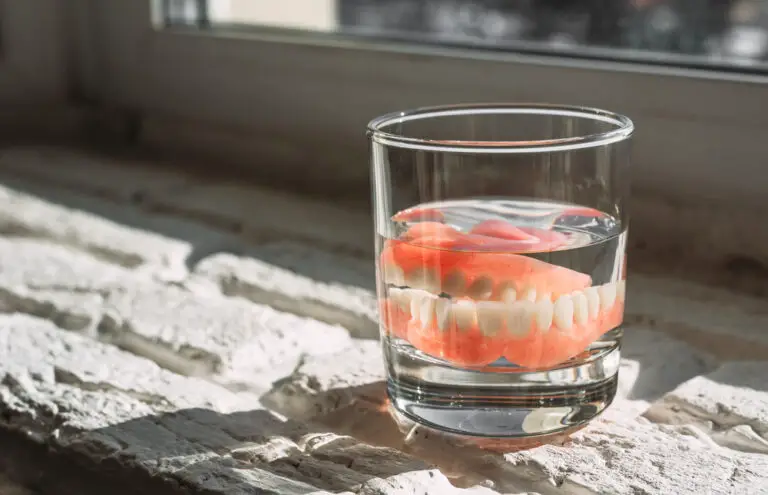What comes to your mind when you think of gum diseases? Gum recession or gingivitis, right?
But have you heard of gum overgrowth?
Sometimes, referred to as gingival hyperplasia or gum enlargement, this condition causes your pink gums to slide over your pearly whites.
And if left untreated, your gums can completely cover your teeth, causing discomfort and even dental problems. Let’s not forget their impact on your radiant smile and self-image.
We understand it can be challenging to uncover the root cause of such a condition and how to stop it. But that’s why we are here.
In this post, we will help you understand why gums grow over your teeth and what actions you should take to prevent further problems and regain your bright smile.
Why Are My Gums Growing Over My Teeth?
Before we can identify potential causes of gums growing over your teeth, let’s first understand this gum disease and its signs and symptoms.
As said above, gingival hyperplasia or gum overgrowth occurs when your gums (or gingiva) thicken and extend over the teeth’ surface. But the manifestation of this condition can vary, from small bumps to gum tissues completely covering the crown of your teeth.
So, what are the signs and symptoms associated with this unwanted growth?
- Redness and inflammation of gums
- Pain and discomfort in the gum tissue
- Feeling of tenderness
- Excessive buildup of plaque and tartar on teeth
- Gums bleeding
Impact of Gum Overgrowth on Dental Health
Gums growing over your teeth can prove detrimental to your overall oral health. If not properly managed, the condition could advance to a more severe form called gingival fibromatosis.
At this stage, the gums completely cover your teeth, making it difficult to brush and floss them. Consequently, the unwanted growth can trap bacteria, food debris, and tartar underneath the gum line. This could lead to dental issues, like tooth cavities and gum disease.
But wait, there’s more…
The enlarged gum tissue can shift your teeth out of place, messing up your bite alignment. It’s also normal for the extra tissue to become irritated when speaking or chewing food.
Potential Causes of Gum Overgrowth
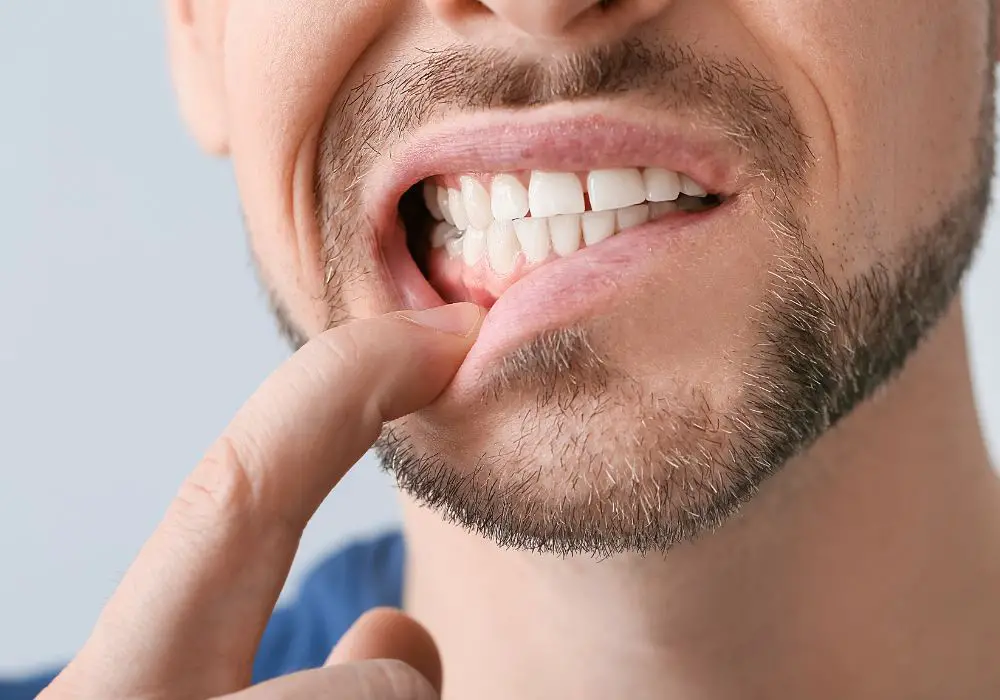
With the symptoms and impact of gum enlargement out of the way, let’s shift our focus to the causes of this condition. They include:
1. Poor Dental Hygiene
If you don’t brush or floss your teeth properly, bacteria, plaque, and food debris could build up on their surfaces and along the gum line. Since your body considers these irritants a threat, your immune system might attack the gum tissues, leading to inflammation.
Most cases of gingival enlargement are inflammatory and often characterized by swelling and bleeding of the gums. Fortunately, adopting good oral hygiene practices can help improve this condition.
2. Certain Medications
Gum overgrowth can also occur as a side effect of specific medications. Unlike inflammatory gingival hyperplasia, this condition turns the gum tissue from pink to dark red or even purple. It also makes them firm, fibrous, and highly susceptible to bleeding.
In the worst-case scenario, medication-induced gingival overgrowth can cover your teeth crowns, causing gum disease and bite problems.
But what are these medications that cause gum enlargement?
- Antiseizure drugs like phenytoin
- Immunosuppressants like Cyclosporine
- Cardiovascular medications like calcium channel blockers and nifedipine
However, drug-induced gingival hyperplasia can resolve (partially or fully) once you stop taking the medication. If you cannot discontinue the drug, talk to your doctor to change your dosage or provide alternative solutions.
3. Genetic Predisposition
Some hereditary disorders can cause ulcerative lesions or enlargement of gums. One such disorder is hereditary gingival fibromatosis (HGF).
HGF often begins in childhood during the transition from primary to permanent teeth. It results from the overproduction of collagen and causes the gums to enlarge gradually. In advanced stages, the gingival tissue might cover the crowns of teeth entirely.
Other genetic disorders associated with gums overgrowth include:
- Zimmerman–Laband syndrome
- Ramon syndrome
- Jones syndrome
- Systemic hyalinosis
4. Hormonal Imbalances
Besides genetics, hormonal changes during puberty can cause an overgrowth of the gums. Studies show that both male and female adolescents can develop this condition. And it usually appears in areas with plaque and tartar accumulation.
At the onset of puberty, boys and girls produce sex hormones that can change the microbial environment in the gingival tissues. As a result, some bacterial species can capitalize on the high concentration of these hormones to grow under the gum line and cause inflammation of the gums.
Hormonal imbalances during pregnancy can increase the inflammation of gum tissues too.
5. Systemic Diseases
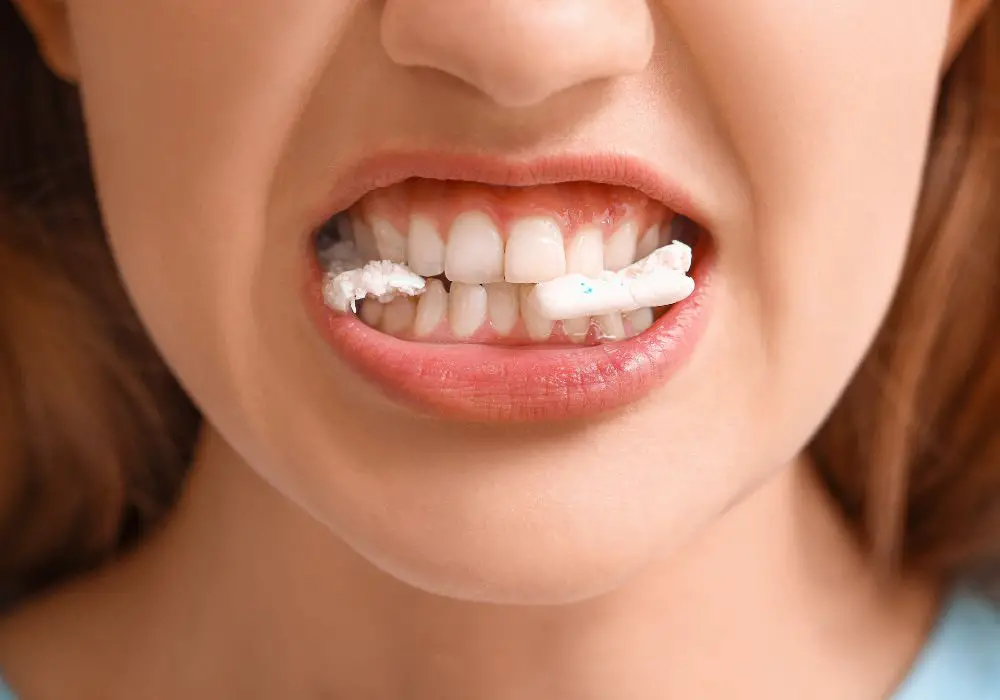
Like medications, certain physiological and systemic conditions can increase your risk of gingival hyperplasia. For example, research shows that a majority of patients with Acute Myeloblastic leukemia report rapid gum overgrowth along with gingival bleeding.
Other diseases that could cause gum enlargement include:
- Diabetes
- Lymphoma
- Anemia
- Human Immunodeficiency Virus (HIV)
- Cowden’s syndrome
- Vitamin deficiencies
How to Stop Gums from Growing Over Your Teeth?
In most cases, good dental hygiene practices and dental care can help improve the symptoms of gingival hyperplasia.
By brushing and flossing your teeth twice a day, you can get rid of irritants (plaque, bacteria, and residual food particles). This way, you can prevent gum inflammation and overgrowth.
You can also take some anti-inflammatory medications like azithromycin to kill harmful bacteria and stop overgrowth. But first, consult with your dentists.
If these solutions don’t work, opt for dental procedures such as:
1. Gingivectomy
For drug-induced gum growth and hereditary gingival fibromatosis, your orthodontist might recommend a gingivectomy. This is a surgical procedure that involves removing gum overgrowth and improving your smile. Gingivectomy also helps prevent impaction and displacement of teeth.
During the surgery, your dentist will remove excess gingival tissue and small amounts of the underlying bone. After that, the specialist will reshape the loose gum tissue, remove pockets between teeth, and stitch up the surgical site to slow down the bleeding.
Depending on the severity of the gum enlargement, you might require repeated removal to prevent the condition from recurring.
2. Laser Excision
As the name suggests, laser excision involves using advanced laser-cutting tools to remove enlarged sections of the gums. Unlike scalpels, lasers offer more precision during the surgical procedure. They also accelerate the healing and cauterization process, plus reduce the risk of infections.
However, the procedure is costly. So, if you want to save money, opt for traditional or scalpel gingivectomy.
3. Electrosurgery
Electrosurgery is another effective way to stop gum overgrowth. The procedure involves applying electric current to the gingival to cut or coagulate affected tissues. Like laser excision, electrosurgery minimizes bleeding and promotes faster healing.
4. Periodontal Flap Surgery
In periodontal flap surgery, a dentist will pull back a section of your gums from your teeth and fold it back to remove the affected tissue. The oral health specialist will also get rid of any plaque or tartar buildup on the tooth’s root surface.
Afterward, the doctor will reshape and reposition your gum to reduce gaps where bacteria, debris, and plaque can hide.
However, you might have to deal with teeth sensitivity and sore gums for a few days.
Tips to Maintain Healthy Gums
- Get regular dental cleanings: We have established that inflammatory gingival hyperplasia occurs due to bacteria and tartar buildup. So, schedule dental cleaning sessions with your dentist to remove these irritants and prevent gum diseases.
- Avoid tobacco products: Whether you smoke or use nicotine products, it’s time to quit to prevent damage to your gum. Remember, nicotine weakens the immune system, making it hard for the body to fight off gum infections caused by bacteria. Also, smoking prevents your gums from healing when damaged and contributes to the buildup of stubborn plaque and tartar.
- Brush teeth after every meal: This way, you can remove food debris trapped between your teeth and gums. As for toothpaste, invest in fluoride-based products to kill bacteria and whiten your teeth. And when brushing, don’t forget to clean your tongue because it can hold bacteria too.
- Use therapeutic mouthwash: Besides fluoride toothpaste, use over-the-counter therapeutic mouthwashes to reduce plaque and remove food debris in hard-to-reach parts of your mouth. These mouthwashes also help to prevent gum diseases like gingivitis.
- Mind what you eat: Include plenty of high-fiber fruits and vegetables in your diet to keep your mouth clean. You should also consume calcium-rich foods for healthy teeth and drink black and green tea to reduce bacteria. Lastly, reduce or avoid sugar-rich food, alcohol, and carbonated beverages.
Closing Thoughts
In conclusion, gum overgrowth is a serious problem that requires 100% of your attention. Failure to do so could lead to several dental health problems, such as tooth decay, bad breath, and bite issues.
So, what is the solution?
It’s simple! Maintain a consistent dental care and maintenance routine to prevent bacteria and tartar buildup on the teeth surface and underneath the gum line.
If the condition is drug-induced, talk to the healthcare provider to switch doses or stop the medication. In severe cases, you might need a gingivectomy surgery or periodontal flap surgery.
So, if you suspect gum enlargement or show symptoms of the condition, make an appointment with your periodontist. Remember, early interventions can prevent costly treatments and improve your dental health.

